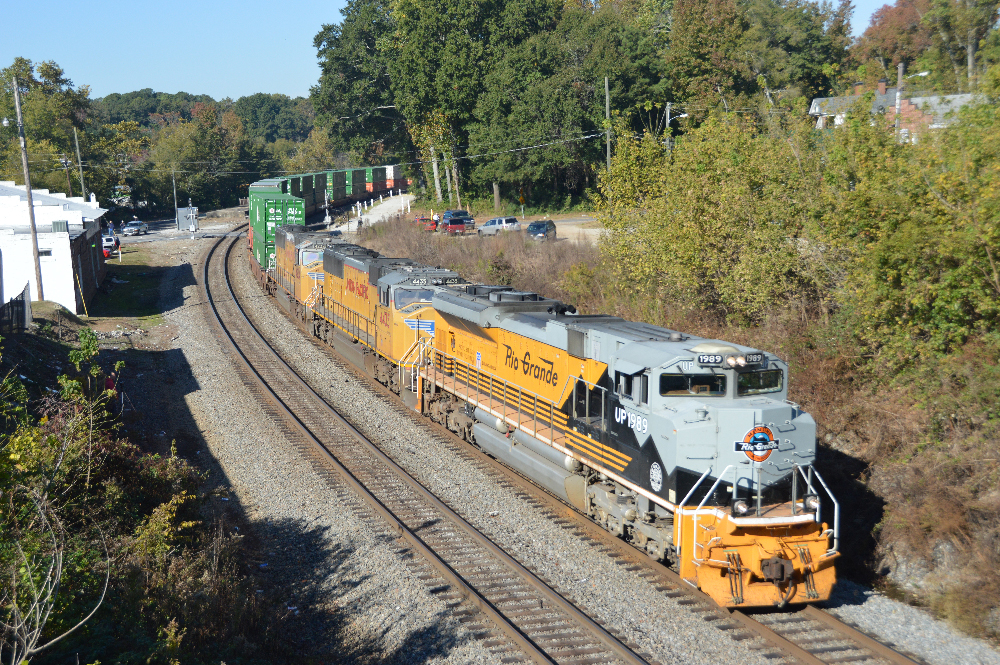
WASHINGTON — Canadian Pacific Kansas City Southern’s handling of Norfolk Southern intermodal trains on the Meridian Speedway — their joint venture shortcut linking the Southeast with Texas and the Southwest — has deteriorated to the point that some customers are shifting freight to trucks, NS claims in a letter to federal regulators.
CPKC disputes this, saying that NS and interchange partner Union Pacific are misrepresenting the facts and cherry-picking operational data while underpowering their stack trains. Their real beef, CPKC says, is that CPKC recently reimposed an 8,500-foot train-length restriction on the Speedway. And that forces UP to run a second section of its eastbound ZLAAI stack train, which at 11,000 feet had been the only train running over siding length. (On its portion of the run, NS refers to this train as 28J.)
NS seeks regulatory remedy
NS this week asked the Surface Transportation Board to enforce CPKC’s promise, made while the CP-KCS merger was under regulatory review, that it would maintain service levels on the Speedway, the 302-mile corridor that stretches from Meridian, Miss., to Shreveport, La.
“Unfortunately, CPKC’s performance has not matched its promises … Over the last six months transit times on Meridian Speedway haulage trains to and from Shreveport have ballooned,” NS said in a Sept. 30 letter to the STB. “In August … 68% of eastbound haulage trains moving from Shreveport to NS were transit time failures.”
Contractually, the trains are guaranteed a 13-hour transit time across the Speedway provided that they meet certain criteria. But NS told the STB that the average run time for eastbound train 28J in August was 15 hours, 57 minutes.
NS says container volume on the route has fallen steadily since CPKC acquired KCS in May 2023. NS and KCS handled 400,000 loads on the Speedway in 2022, NS says. Volumes fell 22% last year compared to 2022, and this year to date have declined further. The ongoing decline is on pace to hit 100,000 loads this year, NS told the board.
“While some of this business has migrated to competing intermodal products, much of it reflects customers who have shifted back to truck transportation as a result of unreliable Meridian service,” NS says.
NS asked the STB to direct CPKC to provide a service action plan, ensure acceptance of UP-NS trains at either end of the Speedway, and provide sufficient crews to operate the haulage trains. The STB, however, is not operating during the partial shutdown of the federal government, which began Oct. 1.
Speaking at a Journal of Commerce conference this week, UP CEO Jim Vena said the railroads are asking CPKC to honor existing commitments. Current operations on the Meridian Speedway are falling short, he said, and are having a negative impact on customers.
Vena, whose railroad reached a merger deal with NS in July, said the disagreement is an example of why partnerships fall short as railroads put their own interests above what is best for the customer.
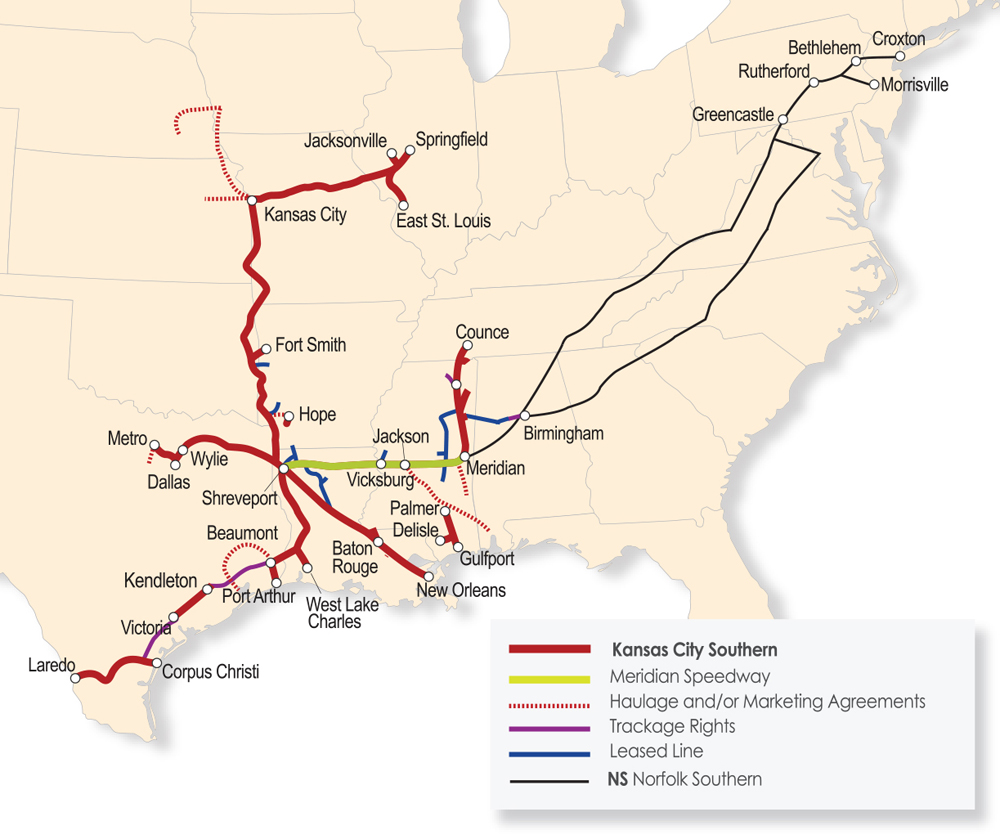
CPKC: We’re meeting commitments
“CPKC is preparing a detailed response to refute these misleading claims and representations that will be filed with the Surface Transportation Board in the coming days,” a railroad spokesman says. “CPKC has lived up to its commitments and will continue to do so.”
The railroad also said that the decline in traffic volumes over the Speedway correlates with ongoing surplus truck capacity and rock-bottom trucking rates — not service issues.
The Speedway carries eight to 10 trains per day, plus locals. CPKC said its order restricting trains to siding length aims to improve service for all customers and is in line with operating practices across its system.
The single-track route has 21 passing sidings, most of which are around 8,500 feet long. Only three of the sidings can handle an 11,000-foot train, meaning that virtually all westbounds had incurred delays while taking the siding for meets with the 28J.
Since imposing the length restriction six weeks ago, transit times have improved for all trains, CPKC says, noting that overall train delays have been reduced by 11 hours per day.
“We understand that delivering shorter trains at Shreveport requires adjustments by UP when it builds its trains out west, but it is our responsibility in safely and efficiently operating the Speedway to ensure our customers’ interests are weighed and protected fairly as well, not only just what UP believes is in their best interest,” a CPKC spokesman said.
CPKC said that NS is not measuring transit times following the terms outlined in the Meridian Speedway agreements that date to 2006. And over the last 19 days the majority of the UP-NS interline stack trains have not met the minimum 2.15 horsepower per ton ratio threshold required under the contractual 13-hour transit time guarantee, CPKC says.
NS data covering March through August, however, showed average HPT was 2.87 for the 28J and 3.37 for westbound 29S. CPKC is analyzing that data.
CPKC says it will begin running a second regularly scheduled section of 28J beginning Nov. 17, when additional crews are trained and marked up for service.
CPKC initially imposed an 8,500-foot restriction on the Speedway in 2023. It was subsequently lifted after a gentlemen’s agreement between UP and CPKC that included commercial and operational matters elsewhere on their systems. CPKC said it reimposed the siding-length restriction six weeks ago because UP did not hold up its end of that bargain.
The Meridian Speedway joint venture dates to 2006, when NS contributed $308 million to fund capacity, signal, and track improvements in exchange for a 30% interest in the Kansas City Southern route. NS spent an additional $207 million on intermodal terminal projects in Atlanta, Jacksonville, Fla., and Charlotte, N.C.
Under the Meridian Speedway LLC agreements, NS has haulage rights on the Speedway for intermodal traffic that originates or terminates west of Dallas.






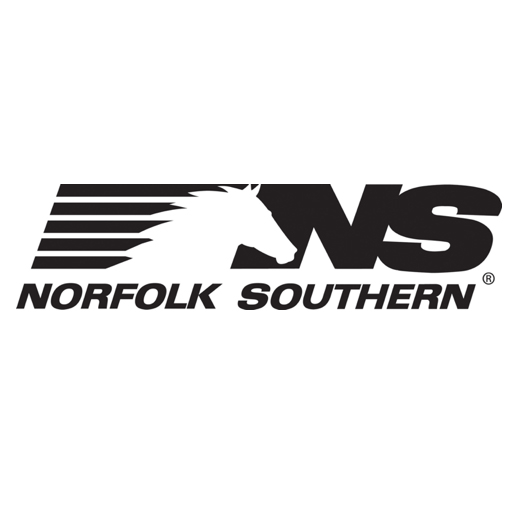

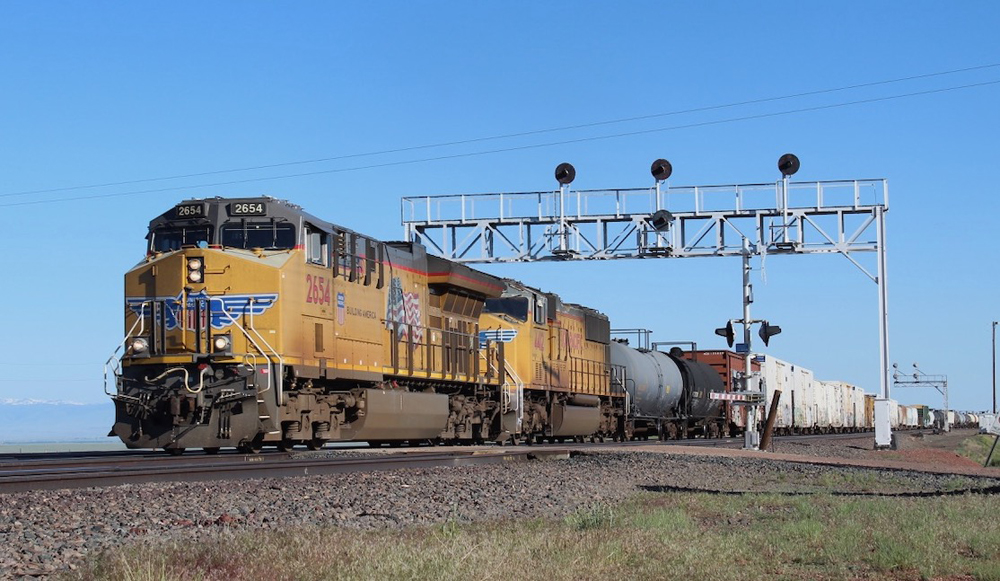
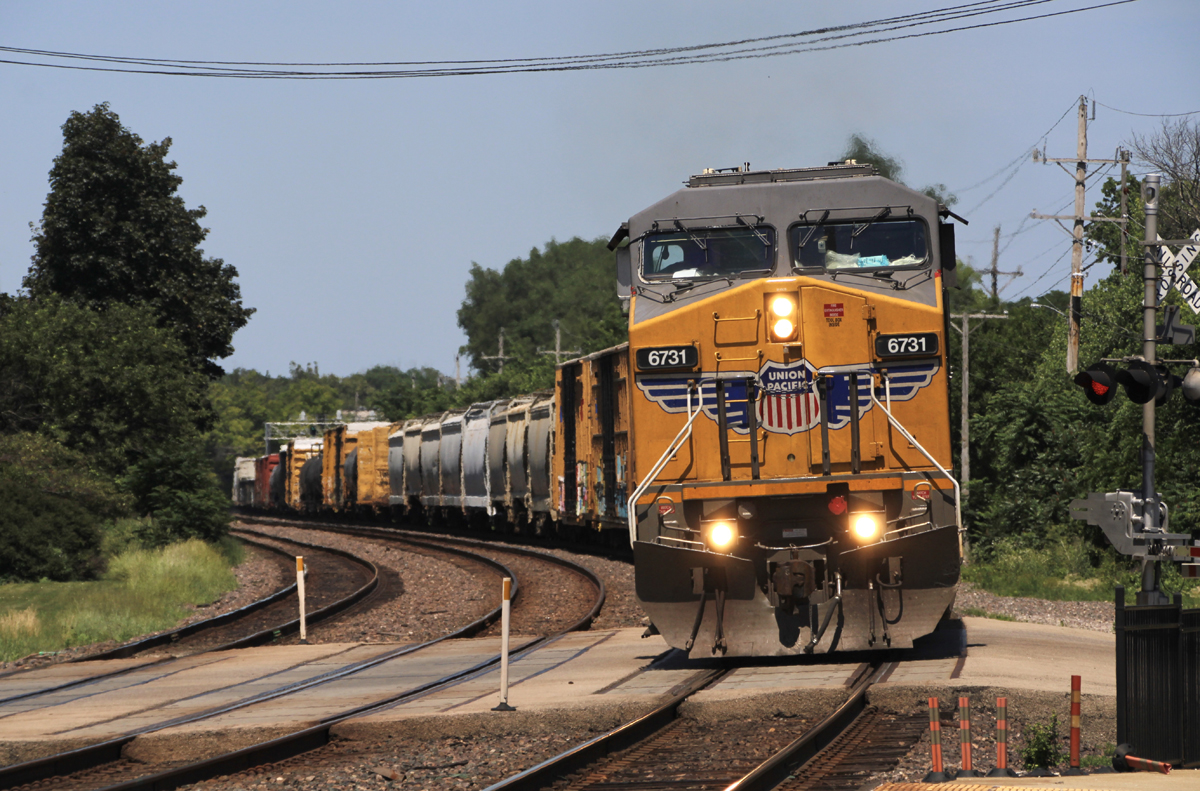




Sounds like a rational for the UP NS merger to me.
The Meridian Speedway is definitely in need of double-tracking its full 302-mile length.
Much of the Sunset Route east of San Antonio to New Orleans is still single track despite the busy rail traffic. Much of the tracks are worn with faded deep grained wooden ties (that bring to mind slices of roast beef 😋).